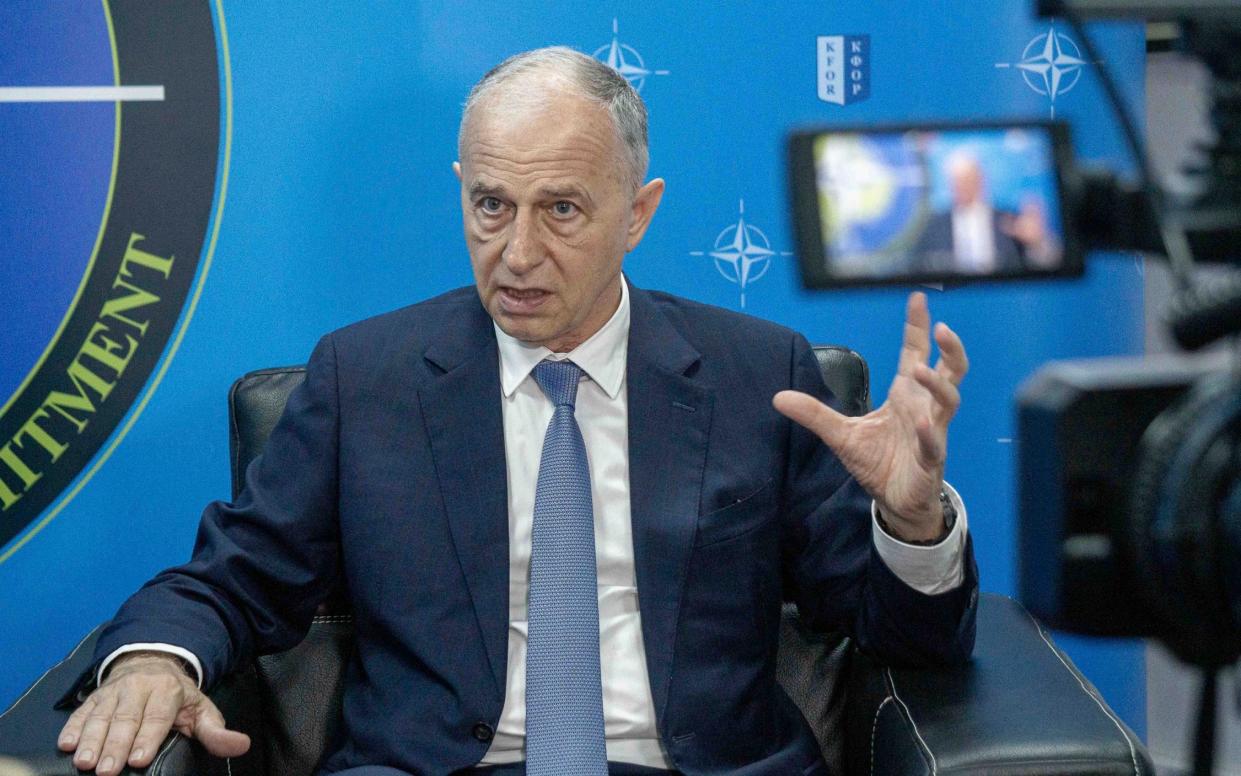Not if but when, Nato’s deputy chief says about Ukraine’s accession

It is not a question of if Ukraine joins Nato, but when, the alliance’s second in command has told The Telegraph.
Nato deputy secretary general Mircea Geoana said there was “absolutely no question” among the 32 allies over whether Ukraine should join but only when the conditions would be met.
In 2008, Germany blocked Ukraine from joining the military alliance. Vladimir Putin demanded guarantees that Ukraine would not join Nato before he launched his illegal invasion of the country in February 2022.
Mr Geoana said that Nato support for Ukraine, which formally applied to join in September 2022, included building a “bridge towards membership”.
“Ukraine is getting closer to Nato almost every day,” he told The Telegraph. “It’s not a question of if Ukraine will become a member but when the political conditions will be met.”
“I cannot say when but I know that Ukraine will be part of the Euro-Atlantic family,” he said.
“War is not the best time to entertain such prospects. But the moment will come when considerations such as security guarantees for Ukraine, a stronger Ukraine and deterring Russia will be coming.”
A strong Ukraine with a robust military, democracy and economy were preconditions for joining Nato, he said, as was the future “security architecture” of Europe.
Aggressive and unpredictable
“Russia unfortunately, continues to be aggressive and unpredictable and dangerous and can continue to be so for many years to come,” Mr Geoana said.
“These three pieces are working in a certain direction. A dangerous Russia, strong Ukraine, and our interest in making sure that there is peace and stability in Europe.”
Mr Geoana’s comments echo those made by US Secretary of State Antony Blinken last week. He said that support for Kyiv was “rock-solid” and that a July Nato summit in Washington would aim to forge a path to eventual membership.
The Nato deputy secretary general played down fears that some Nato members might veto Ukraine’s membership.
Hungary, led by Viktor Orban, has delayed EU sanctions against Moscow and aid for Ukraine. Slovakia is led by Robert Fico, who won elections after vowing to stop weapons shipments to Kyiv.
“Of course, you see nuances from allies, but we do not see major differences in terms of continuing supporting Ukraine or investing in our own defence,” Mr Geoana said,
He said there was less “disharmony” in Nato because “we are dealing with the most precious thing which is national security and defence of the nation.”

 Yahoo News
Yahoo News 
